POPULATION
5.894.000
CURRENCY
United Arab Emirates Dirham
(AED)
TIMEZONE
GMT +4:00
LANGUAGE
ARABIC
WEATHER
JULY 41ºC /
JANUARY 22ºC
AIRPORTS
Dubai International Airport
Al-Maktoum Airport
HISTORICAL IMPORTANCE OF DUBAI
Dubai holds significant historical importance as a trading hub that dates back centuries. Situated on the shores of the Arabian Gulf, Dubai's strategic location facilitated maritime trade routes between Europe, Asia, and Africa. Historically, it was known for its pearl diving industry, which sustained the local economy until the discovery of oil in the 1960s. Dubai's transformation into a global city began under the visionary leadership of Sheikh Rashid bin Saeed Al Maktoum, who focused on diversifying the economy and investing in infrastructure. This included the development of Port Rashid in the 1970s and later Jebel Ali Port, which became one of the largest and busiest ports in the world. Dubai's ambition to become a cosmopolitan business and tourism hub accelerated with the establishment of free zones, like Jebel Ali Free Zone, attracting multinational corporations and fostering economic growth. Today, Dubai is renowned for its modern skyline, world-class infrastructure, and as a symbol of ambition, innovation, and cultural diversity in the Middle East.
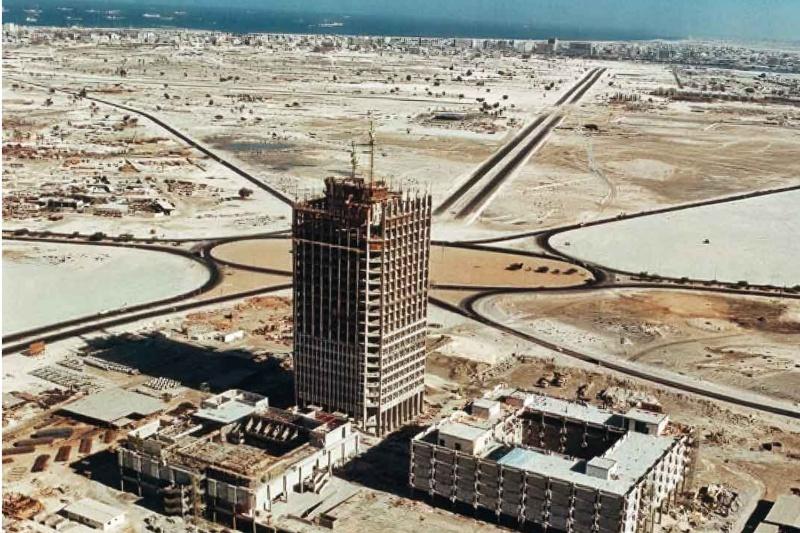
CITY OF RECORDS
Dubai has established itself as a city that embraces records across various domains, reflecting its ambition and innovation. The city boasts several notable records, including the tallest building globally, the Burj Khalifa, standing at 828 meters. Dubai is also home to the largest shopping mall by total area, The Dubai Mall, which includes the largest indoor aquarium and boasts a massive retail space. Furthermore, Dubai's commitment to luxury is underscored by having the most luxurious hotel, the Burj Al Arab, known for its iconic sail-like structure and opulent amenities. Beyond architectural and commercial feats, Dubai holds records for hosting extravagant events and projects, such as the Palm Jumeirah, one of the largest artificial islands in the world. These records illustrate Dubai's continuous pursuit of excellence and its desire to push boundaries in various spheres.
THE BEST TIME TO VISIT DUBAI
The best time to visit Dubai is typically during the winter months, from November to March. During this period, the weather is pleasantly warm and comfortable, making it ideal for outdoor activities and sightseeing. Temperatures are milder compared to the scorching summer months, which can be extremely hot, with temperatures often exceeding 40°C (104°F). Additionally, many festivals, events, and outdoor markets are held during the winter season, adding to the vibrant atmosphere of the city.
TRANSPORTATION TO DUBAI
Dubai is well-connected internationally by air, with Dubai International Airport (DXB) being one of the busiest airports globally. Several major airlines offer direct flights to Dubai from various cities around the world. Once in Dubai, transportation within the city is primarily facilitated by an extensive and modern public transportation system. This includes the Dubai Metro, which is clean, efficient, and covers key areas of the city. Taxis are also widely available and relatively affordable. Additionally, Dubai has a well-developed road network, making it convenient to rent a car or use ride-hailing services for flexible travel.
SKIING IN DESERT
Ski Dubai, nestled within the Mall of the Emirates in Dubai, is an impressive indoor ski resort spanning 22,500 square meters. It offers a surreal winter experience amidst the desert climate, featuring slopes for skiing and snowboarding of varying difficulties, including the world's first indoor black diamond run. Maintaining a frosty temperature of around -1 to -2 degrees Celsius year-round, Ski Dubai provides a comprehensive snow experience complete with tobogganing, snow tubing, and even opportunities to interact with penguins. The resort's themed cafes and shops add to its charm, making it a popular destination for both locals and tourists seeking a unique snowy adventure in the heart of the city.
THINGS TO DO AND PLACES TO VISIT
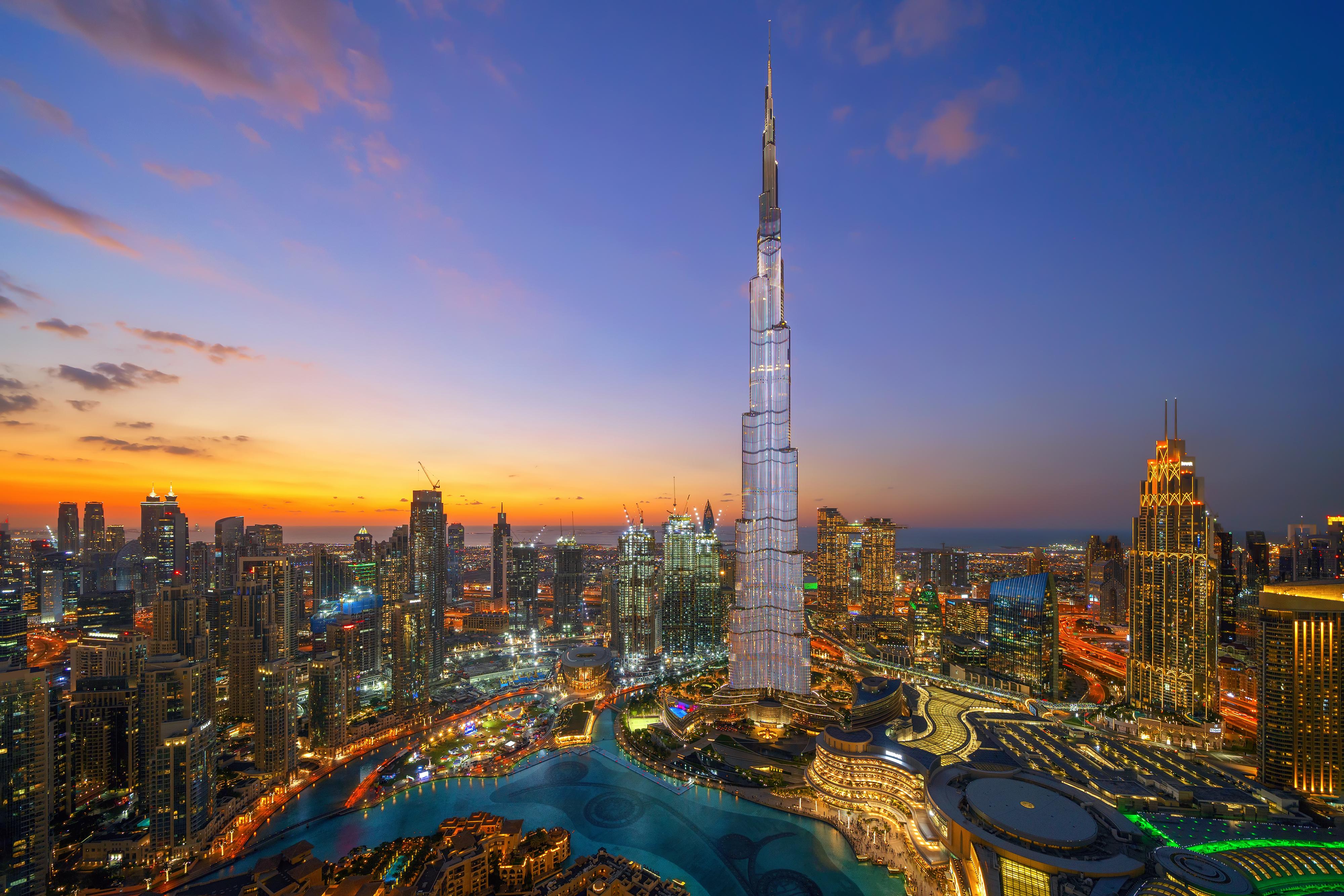
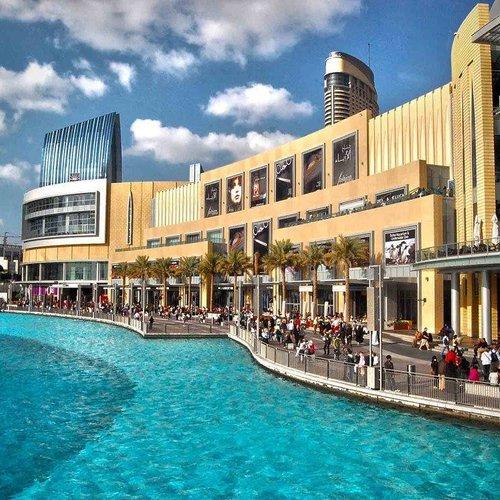
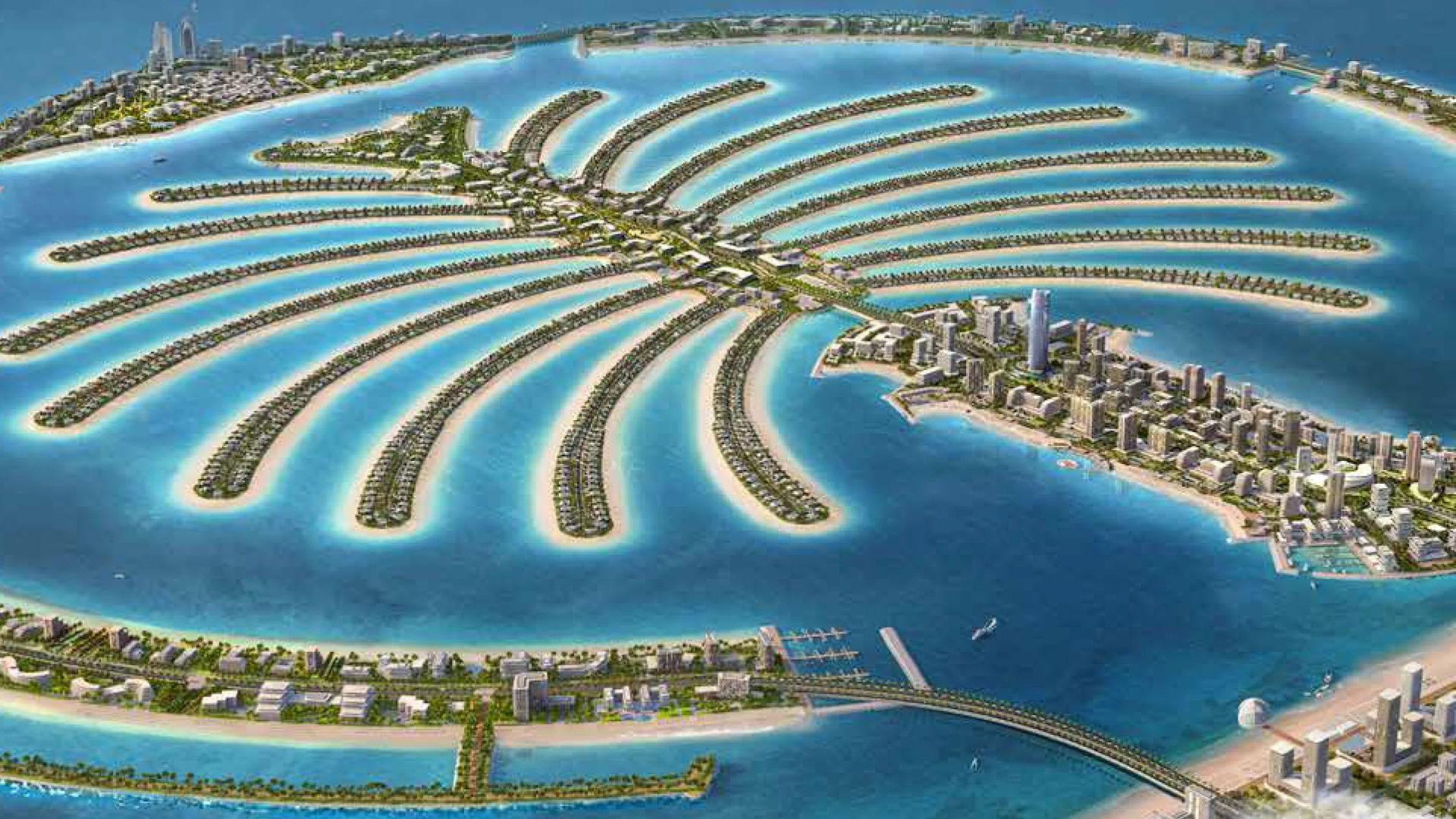
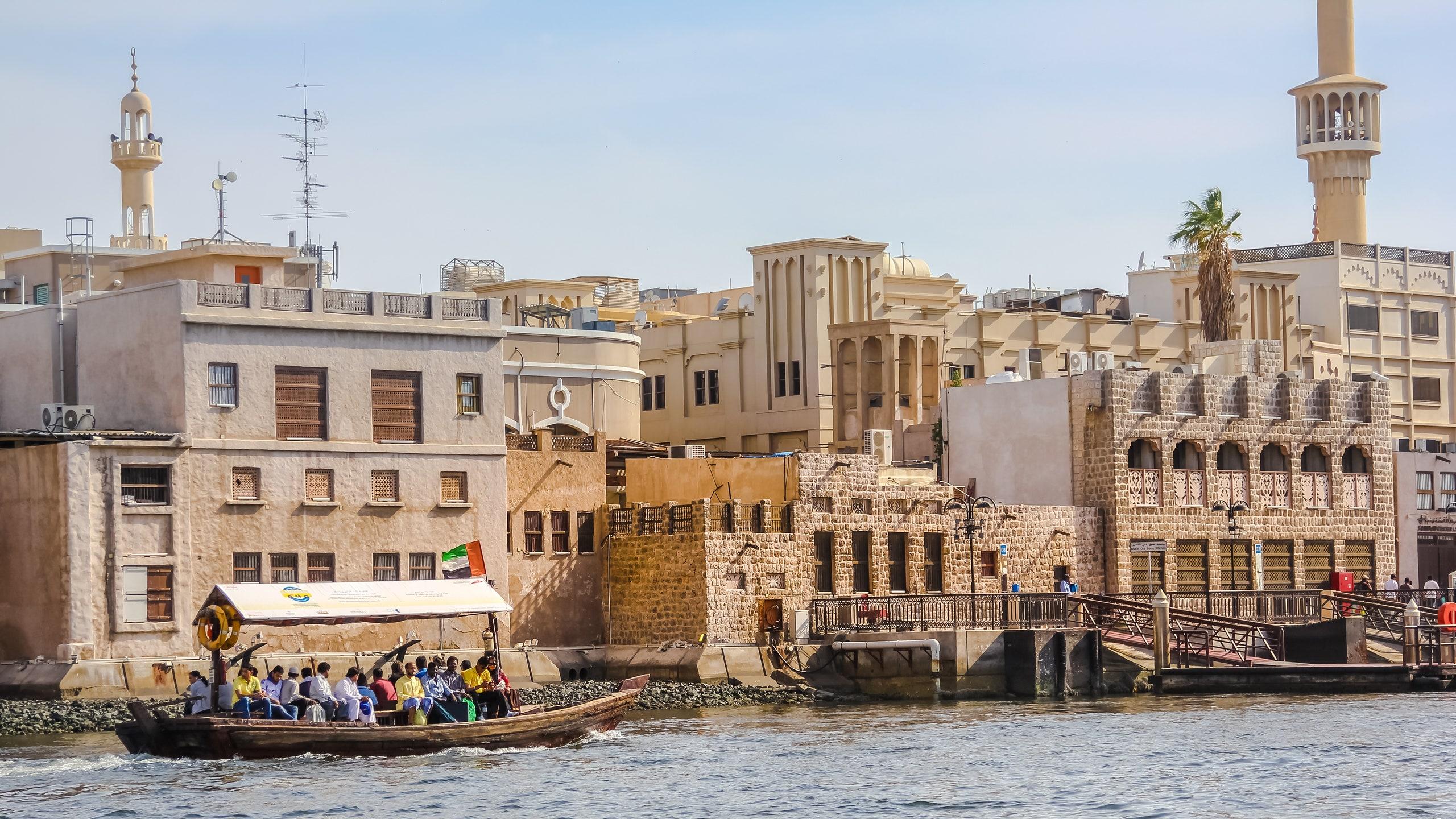
WHAT TO EAT IN DUBAI
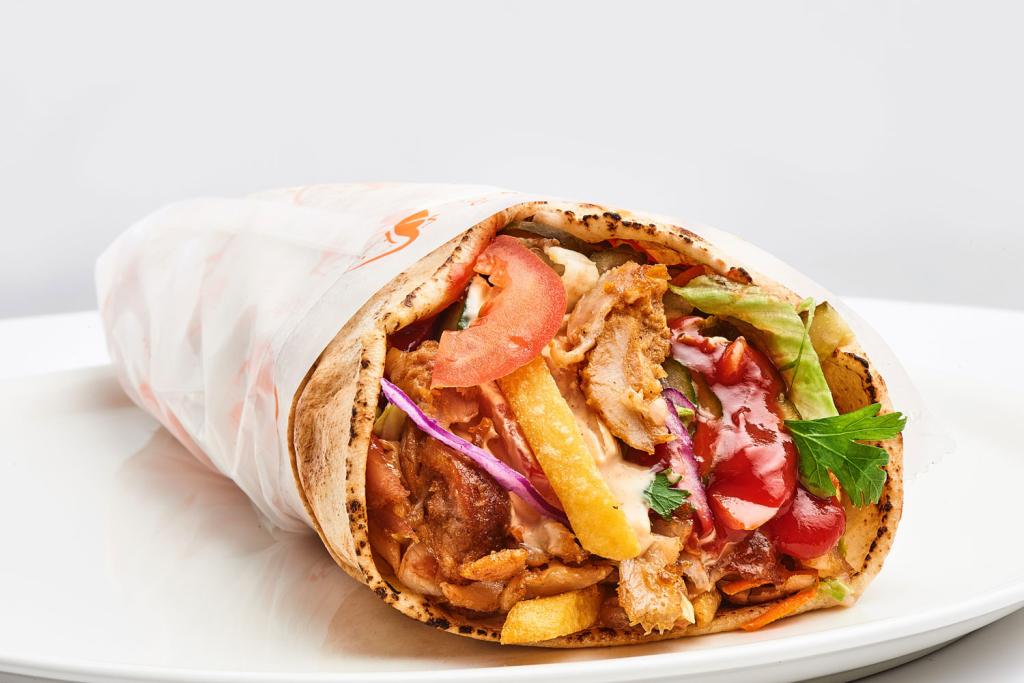
SHAWARMA
Shawarma in Dubai is a beloved and ubiquitous street food that has found a special place in the city's culinary landscape. Typically made with thinly sliced marinated meat (often chicken or lamb), shawarma is grilled on a vertical rotisserie and then shaved off in thin slices. These tender, flavorful meat slices are usually served wrapped in warm flatbread, along with garlic sauce, tahini, pickles, and sometimes French fries, creating a delicious and satisfying meal. Shawarma stalls and small restaurants offering this Middle Eastern delicacy can be found throughout Dubai, catering to locals and tourists alike who appreciate its convenient, hearty, and flavorful appeal.

HUMMUS
Hummus in Dubai is a popular and versatile Middle Eastern dish that has gained widespread popularity across the city. Made primarily from mashed chickpeas blended with tahini (sesame seed paste), olive oil, lemon juice, garlic, and salt, hummus is known for its creamy texture and savory flavor. In Dubai, hummus is typically served as a dip accompanied by fresh pita bread or as part of a mezze platter alongside other dishes like falafel, tabbouleh, and baba ghanoush. It's enjoyed both as a casual snack in local eateries and as part of fine dining experiences in upscale restaurants, reflecting its appeal to a wide range of palates and culinary preferences.

MACHBOOS
Machboos is a traditional Emirati dish that holds a prominent place in Dubai's local cuisine. It consists of spiced rice cooked with meat, commonly chicken, lamb, or fish. The rice is typically flavored with a blend of aromatic spices such as cinnamon, cloves, cardamom, and bay leaves, giving it a rich and fragrant taste. The meat is marinated and cooked separately before being layered with the spiced rice, allowing the flavors to meld together beautifully. Machboos is often garnished with fried onions, nuts like almonds or pine nuts, and sometimes raisins, adding both texture and sweetness to the dish. It's a hearty and flavorful dish that showcases the culinary traditions of the region, enjoyed by locals and visitors alike in Dubai's restaurants and homes.

FRESH SEAFOOD
Dubai's coastal location along the Arabian Gulf ensures a diverse and abundant selection of fresh seafood that plays a central role in its culinary offerings. Local specialties include grilled hammour and kingfish, succulent shrimp dishes, and flavorful crab preparations, all seasoned with a blend of traditional Emirati spices and herbs. Whether enjoyed at casual beachfront eateries, bustling fish markets like Deira Fish Market, or upscale dining venues in luxury hotels, Dubai's fresh seafood delights both residents and visitors alike with its quality, variety, and vibrant flavors straight from the sea.
HOW MANY DAYS SHOULD YOU SPEND IN DUBAI?
The ideal number of days to spend in Dubai can vary based on personal preferences and the activities you wish to experience. However, many travelers find that spending around 3 to 5 days allows enough time to explore the city's key attractions and experience its diverse offerings. This timeframe typically allows visitors to visit iconic landmarks such as the Burj Khalifa, Dubai Mall, and Palm Jumeirah, enjoy desert safaris, experience cultural highlights like the Dubai Museum and traditional souks, and indulge in the city's renowned dining and shopping scenes. Adjusting your itinerary based on specific interests, such as adventure sports, luxury experiences, or cultural immersion, can help optimize your time in Dubai.
